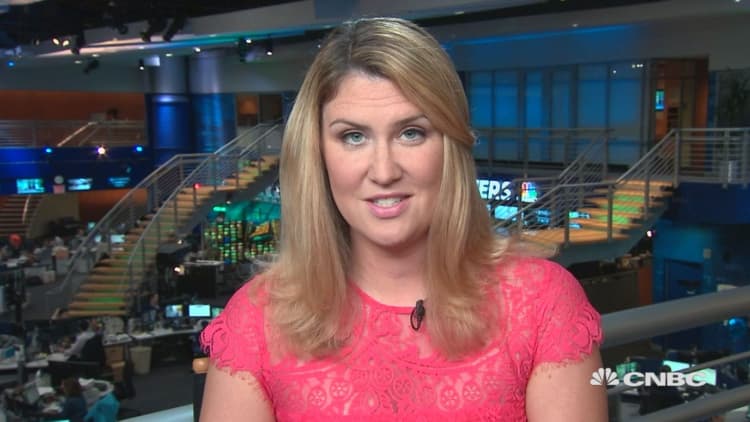There may be no free lunch in the financial services industry, but there is now free trading of stocks, exchange-traded funds and options.
Charles Schwab announced on Oct. 2 it would eliminate commissions on those products for retail and registered investment advisor clients on its platform. TD Ameritrade and ETrade quickly matched Schwab, and Fidelity followed suit a week later. Pershing is the only major custodian not to have cut commission rates to zero.
While the change was not a big surprise, it represents a major turning point in the wealth management industry.
"We've all known this was coming, though it did happen very quickly," said Tim Welsh, founder and CEO of wealth management consulting firm Nexus Strategy in Larkspur, California. "We're heading to zero in all forms and fashions, and this is another milestone."
The writing was indeed on the wall. Since robo-advisor Robinhood launched its platform offering free equity trades in 2013, other new commission-free entrants have been proliferating.
More from Financial Advisor 100:
CNBC FA 100 2019 list of top-rated financial advisory firms
Top-ranked advisory firms help meet their client's financial goals
'Personal touch' will still dominate financial advice space
Schwab CFO Peter Crawford cited those new competitors in a commentary following his company's announcement. "We are seeing new firms trying to enter our market using zero or low equity commissions as a lever," he wrote. "We're not feeling competitive pressure from these firms … yet."
The clients of RIAs who use the custodial platforms will clearly benefit from lower costs, yet advisors are not without concerns about the development.
"The thing you wonder is if commissions are going away, will costs rise in other areas," said Matthew Young, president of Richard C. Young & Co., a Naples, Florida-based firm that uses Fidelity for custody of client assets.
Young, whose firm came in at No. 10 on CNBC's FA 100 list of top financial advisory firms, is not a fan of this race to the bottom.
"Custodians run a business and they need to make money," he said. "We rely on them to constantly upgrade their platform, and I want to make sure they have the resources to do that."
The inexorable decline of commissions has been ongoing for decades, but the final jump to zero is a big blow to some firms. TD Ameritrade, for example, a favorite platform for frequent traders, stands to lose about $900 million in annual revenue — about 16% of trailing 12-month revenue and more than 30% of trailing earnings, according to Devin Ryan, an analyst with JMP Securities.

TD Ameritrade, however, is putting a brave face on the development.
"Yes, it was very painful and the revenue give-up wasn't helpful at all," CEO Timothy Hockey told analysts on the company's recent fourth quarter earnings call. "But it's actually a bit liberating in terms of really trying to understand where we can create value for clients and then potentially charge for it."
How firms will make up for the lost commission revenue is a nagging issue for advisors.
"I don't see all of these firms writing off that revenue and not monetizing any of the trading process." said Grant Rawdin, president of Wescott Financial in Philadelphia. His firm, No. 77 on the CNBC FA 100 list, primarily uses Schwab and Fidelity, and also has client assets with TDAmeritrade and Pershing.
"The mole could come up another hole," Rawdin said. "Our challenge is to find out where their revenues come out of our clients."
It varies, depending on the custodian. Schwab, for example, now derives more than half of its revenue from money it makes on the cash holdings of clients. While clients can choose a higher-yielding option, Schwab currently pays 0.1% interest on un-invested cash balances under $1 million in brokerage and retirement accounts, and then invests it at higher yields.
"That's how they've chosen to monetize their customer relationships," Ryan said.
I'm not a fan of the hidden ways custodians make money. I think this will accelerate the focus on transparency of fees for service in the industry.Gavin Spitzerpresident of Wealth Consulting Partners
Others in the industry rely more on revenue from selling customer orders for trade executions to market-makers and high frequency traders. Those firms pay hundreds of millions of dollars annually for the business because they can trade profitably against the orders.
Controversial since Bernie Madoff pioneered the practice in the 1980s, payment for order flow has arguably enabled the rapid decline in retail trading commissions. But it also stands to reason that brokerage customers ultimately foot the bill — and the profit margin of the market-maker — through poorer prices on securities transactions.
"The headline is zero commissions but people don't realize that their custodians could be selling their order flow for money," said Fidelity spokesman Robert Beauregard. The firm stopped the practice in 2015. Fidelity is also making hay with its more generous management of client cash. It defaults cash into a money market account that was yielding 1.57% last week, comparing very favorably to the tiny fractions of return offered by its major competitors.
Other revenue sources for custodians include trading commissions in fixed income and other assets, payments from fund companies for shelf space on their platforms — another controversial practice given fund shareholders ultimately foot the bill — margin lending fees, and a variety of other ticket charges and service fees. In other words, the costs of custodial service are an opaque bag.

"Transparency has been a persistent issue in the industry," Rawdin said. "We don't want to be in the position of trying to figure out what custodians are doing and whether it's in our clients' best interests."
That argues for the eventual move to direct custody fees to simplify the issue.
Gavin Spitzner, president of Wealth Consulting Partners in Basking Ridge, New Jersey, thinks the elimination of commissions, will eventually help. "I'm not a fan of the hidden ways custodians make money," he said. "I think this will accelerate the focus on transparency of fees for service in the industry."
RIAs and their custodians have sticky relationships. The custodians have been crucial to the growth of the RIA business in the last two decades. Their platforms offer access to sophisticated technologies, content and practice management tools that have made RIAs the fastest-growing business model in the wealth management industry.
"The firms that can provide open architecture and best-of-breed technologies with good data and applications will control the business and they should get paid for it," said Spitzner. "That's the North Star for custodians, and RIAs should be rooting for them to achieve it."
For the most part, they are.





